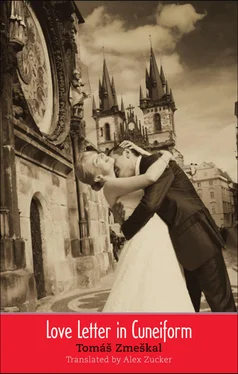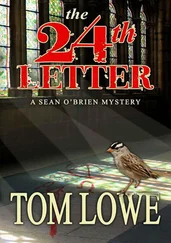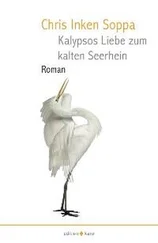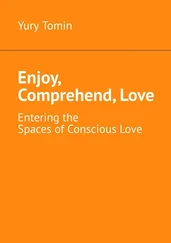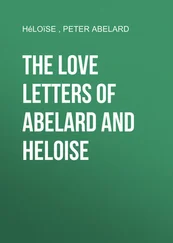“You know, Max, every woman who gets pregnant and has a child is like a diode. I know it sounds strange, but I specialize in low-voltage electrotechnology, and there’s no better way for me to explain.” Maximilian didn’t know what the function of a diode was, so he asked his friend what he meant by this odd analogy.
“A diode conducts current in only one direction, and once a woman has a child she’s never the same again. From then on, you’ll always come second for her,” Honza said. “It’s normal, it’s fine. Get used to it, Max! The sooner you do, the sooner you’ll be able to take it easy.” Maximilian was so exhausted by his friend’s lengthy electro-ethical analogy that he gave up on even trying to understand, though he sensed that what he didn’t grasp would make loving it all the more difficult.
When the boy was born, for Alice it was an unpleasant awakening from nine long months of bliss. Suddenly she began to worry about the things Maximilian had been worrying about for months. She had terrifying dreams, a desire to leave her country forever, and was surprised at the most inconvenient moments by sudden bouts of prolonged arthritic pain. She wanted to leave, run away with her child and husband, and hide somewhere where there would be peace and quiet and no Russian soldiers. The problem was that when everybody had been trying to persuade her of that while she was pregnant, she persuaded them of the opposite, and nobody had the will or the energy left to do it anymore. The child was named Kryštof, and a few months after he was born, Alice got the urge to have another. It wasn’t a child she wanted; it was the state of pregnancy she missed. Her uncle Antonín the doctor, after sending her for a few tests and examinations, told her something about hormones and the levels of some substance or other in the blood, but it sounded too scholarly and too Latin to actually explain anything.
Alice was born in 1950, a few months before her father was arrested, convicted, and sent to prison. Alice didn’t remember any of it; she knew the whole thing only from the stories and recollections of her relatives. Her mother went to visit him every month. Sometimes Alice went with her, but they wouldn’t let her inside anyway, so she stayed with her aunt in the neighboring town. Then one day, after ten years, her father showed up at home. Alice knew him from stories and photographs. She received letters from him, which her mother read to her until she learned to read and could read them for herself. Although she did her best to hide it, her mother wasn’t glad to get his letters. Most of the time she cried and Alice knew it, even though her mother tried not to let her see. And then one day, after her tenth birthday had passed, they let her father out. Alice was looking forward to it. They were all looking forward, and they were all nervous and happy. When they first locked him up, her mother made the rounds of the offices, then various relatives and acquaintances increasingly visited them, together with her mother reading through heaps of papers, which they then filled out and which they discussed in a language Alice didn’t understand. Then one day her mother said she had a big surprise for her: her father would be coming home in two weeks. They were letting him out after ten years, instead of thirteen as the original sentence had called for, and he would be living with them again. Alice didn’t really understand when her mother said her father was coming back home, since as far as Alice remembered he had never lived with them. For her it couldn’t be a return since she had never seen him leave. Her father was due home from prison on a Thursday. The two weeks with her mother till then were unbearable. Alice couldn’t figure out what was wrong. If nothing else she was glad her dad was coming home, since they hadn’t been allowed to talk much about his being in prison. All Alice knew was that, as her uncle Antonín put it, her father was a brave man who had stood up to injustice, and that was why they had put him in jail. This regime, Uncle Antonín went on, were all just a bunch of criminals, you couldn’t expect anything good from them. Alice didn’t really understand what a regime was, but she figured it must be someone important like the school inspector, who not only her teacher Mrs. Svobodová feared, but even the principal of the school, Mrs. Krausová, and that was something. Alice also knew there were things she could talk about only at home, not at school or in shops or on the street. She was looking forward to her daddy coming home, even if her mother was constantly washing, tidying, rearranging things, and dusting. One day Alice overheard her asking Antonín whether or not she should repaint. He convinced her she shouldn’t, saying:
“Take it easy, Květuš. When Josef comes home, he can repaint. You can do it together if you want.” At which her mother, as usual, broke down in tears. Why her mother was crying over painting the apartment, Alice truly could not conceive.
Her uncle Antonín also brought pills that her mother sometimes took, which made her calmer, but still, every now and then, for instance when they were standing in line at the bakery, all of a sudden tears would start rolling down her mother’s face, and when Alice tugged on her sleeve either her mother refused to talk or she would just say the bakery didn’t have such and such a dessert, like Sacher torte, which her daddy loved. Everything connected with her father was sad, so slowly but surely Alice stopped loving him, because every time she remembered him her mother cried and it wasn’t really clear at all why. The apartment was tidied, the windows washed, flowers replanted, her mother even checked Alice’s toys at least four times. It had gotten to be too much to take, so Alice spent as much time as she could at her friend Tereza’s. Her mother left her over there sometimes, since Tereza’s grandfather was also in prison, though a different one than her dad. There was a picture of him in their living room: a big powerful man with a big belly, a large mustache, and a gaze that pierced to the bone. He had one hand tucked in the pocket of his waistcoat with a watch chain hanging out of it, and Tereza’s grandmother always said he was a good man and didn’t deserve it. Alice didn’t believe her, though, since in the photograph he looked really strict and unfriendly. And besides, his belly was so big and looked just as strict as his mustache and his implacable gaze.
On Tuesday, Tereza went over to Alice’s in the afternoon so they could do homework together. The past few weeks Alice’s mother had been buying all sorts of things they’d never had at home before: lipsticks, combs, compacts, even a few little bottles of perfume. Alice and Tereza tried them all. They had permission from Alice’s mother, though they were instructed to be very careful with everything, as it cost a lot of money. When the doorbell rang, they were sure it was going to be their neighbor Mrs. Poláčková, either asking to borrow flour, eggs, milk, yeast, or something else, or asking for the flour, eggs, milk, yeast, or something else to be returned. The two girls looked at each other and grinned.
“Poláčková?” Tereza said.
Alice grinned again. “I don’t suppose you have any yeast, sweetie?” she said, then went to answer the door. She looked out the peephole but didn’t see anyone. It wasn’t Poláčková then. Poláčková always stood so you could see her through the peephole. Alice turned and went back to Tereza.
“Who was it?” asked Tereza.
“Nobody,” said Alice. “There’s nobody there, and if there’s nobody there, we can’t open the door for them.”
After a moment, the doorbell rang again. The two girls got up and went to the door to look.
“Somebody’s there,” said Tereza. “Take a look.” Alice looked and saw a man standing with his back to the door, holding a bag in his hand. The girls looked at each other again and Alice opened the door to find her father standing there. She recognized it was him right away because there were photos of him all over their apartment, most of all in her mother’s room. But he was much, much skinnier than in the photographs.
Читать дальше
